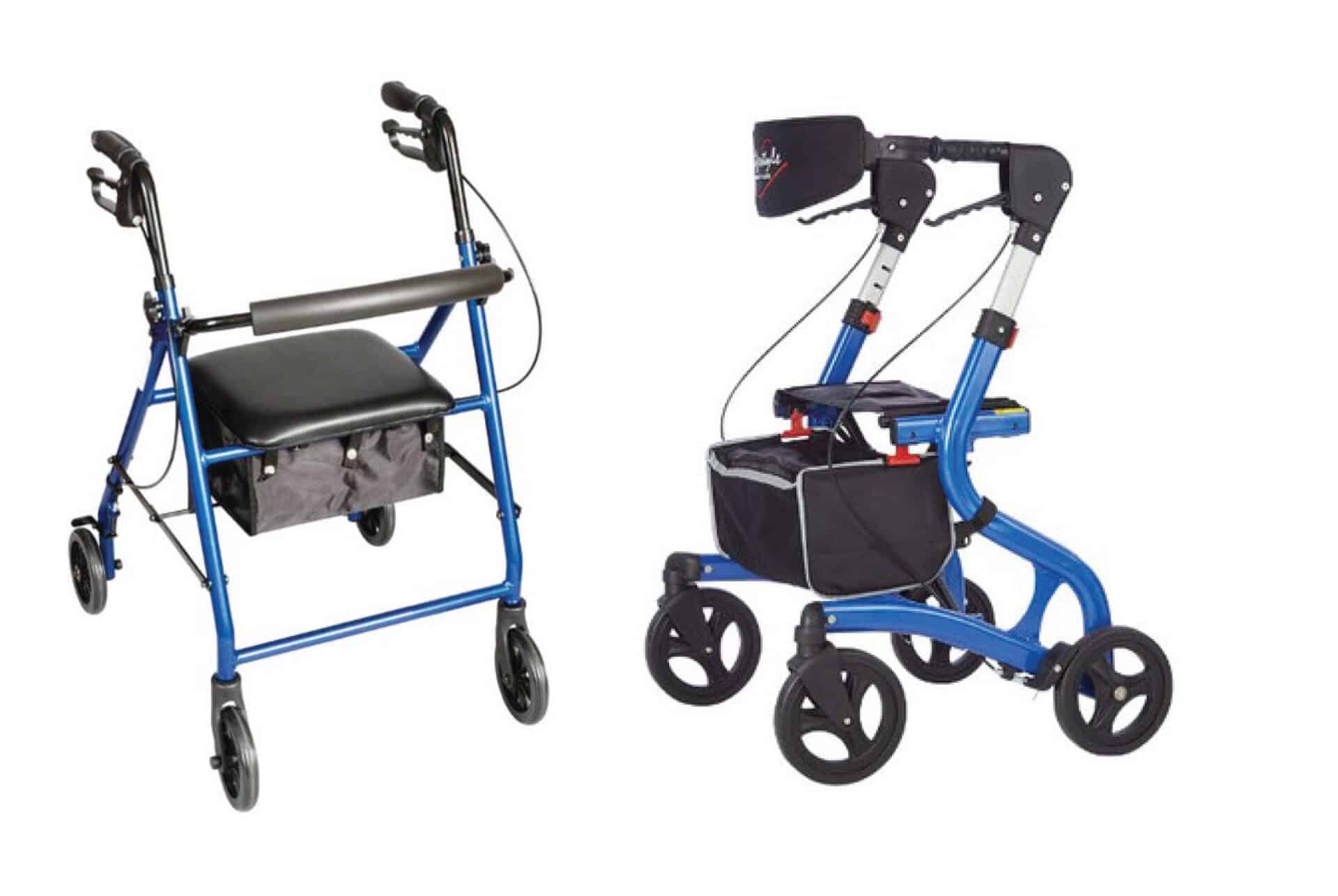Menu

If you or your loved one needs help to walk safely, there are two main mobility products to choose from: walkers and rollators. These devices are designed to help users avoid fatigue and reduce the risk of losing balance and falling while moving. But which of the two is the right one for you or your loved one? To prepare you to make the right decision, here’s an overview.
Walkers are stable mobility devices. They are available in wheeled and non-wheeled varieties. Non-wheeled walkers are primarily designed for people with balance problems. In turn, this requires that a non-wheeled walker needs to be picked up and moved forward before the user can take another step. Therefore, non-wheeled walkers are not ideal mobility solutions for people with limited arm strength.
Wheeled walkers usually have two front wheels, which make them more maneuverable compared to the non-wheeled varieties. In addition to providing ease of movement, they also provide stability.
Walkers ordinarily do not have a seat. However, some accessories can be added. For instance, you can add a walker pouch, a tray, or a basket to hold some items as you move from one place to another.
A rollator is essentially a more advanced walker. These mobility devices are available in four-wheeled and three-wheeled varieties. A three-wheeled rollator can make sharp turns and can fit in smaller spaces, making it more maneuverable than the four-wheeled variety. However, the classic four-wheeled rollator tends to offer more stability. Generally, rollators offer more mobility than walkers. In other words, rollators allow users to move more easily and quickly. In addition to a basket in which users can put their items as they walk, rollators come with seats that allow users to rest during longer walks. The seat option on the rollator is great for individuals who have endurance issues.
The right choice of walking aid depends on your needs. A walker can be an excellent choice for people who need stable support to walk at a slow pace. For instance, if you can move without a wheelchair but have difficulty walking from one room to another, a walker can come in handy. Similarly, if you are recovering from a knee, hip, or foot injury and you can’t bear your weight on one leg, a walker can be quite helpful. However, if you can walk on your own but need a little help with balance and stability, you will need a rollator. A rollator will go a long way in helping you to move at a quicker pace. However, you should consider having a rollator if you can steer it and apply the hand breaks as needed. For more in-depth information on what option is best for you, take a look at our YouTube video.
Walkers and rollators are both great mobility devices that allow people with limited mobility to walk safely and more independently. Picking a rollator or a walker is a personal and important decision that differs from person to person. Ready to find the best walker or rollator to keep you moving? You don’t have to do it alone. All Star Medical is here to help. We carry a wide selection of walkers and rollators alike. Visit us today or browse our wide online selection.
3520A Central Pike
Hermitage, TN 37076
615-730-9438
332 Southgate Ct
Brentwood TN 37027
615-567-6116
Monday-Friday: 9am-5pm
Saturday & Sunday: Closed
3520A Central Pike
Hermitage, TN 37076
615-730-9438
332 Southgate Ct
Brentwood TN 37027
615-567-6116
Monday-Friday: 9am-5pm
Saturday & Sunday: Closed
Please note: Both of our locations are closed today due to weather. If you need assistance, please contact us by phone or our web form.